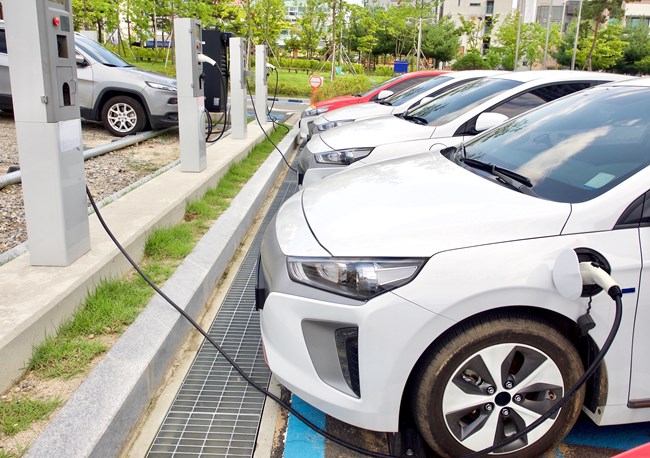We use cookies to ensure that we give you the best experience on our website. If you continue without changing your settings, we will assume that you are happy to receive all cookies on the Business Car website. However, if you would like to, you can change your cookies at any time

The start point for the best source of fleet information |
Flexibility needed on zero-emission targets, SMMT says
Date: 01 July 2022 | Author: Sean Keywood

Proposed rules forcing car manufacturers to sell a certain proportion of zero-emission vehicles each year from 2024 are set to be implemented too quickly, according to the Society of Motor Manufacturers and Traders (SMMT).
The organisation made the claim in its new report, Full Throttle to Full Charge, which aims to set out a roadmap for automotive industry competitiveness on the road to net zero.
Although much of the report concerns problems facing vehicle manufacturing such as increasing energy costs and supply chain problems, it also addresses the proposed mandates.
According to proposals put forward by the Department for Transport earlier this year, a proportion of zero-emission car sales would be mandated for manufacturers each year, in the run-up to the outlawing of new petrol and diesel car sales by 2030, and hybrids by 2035.
A consultation document suggested legally binding targets starting at 22% in 2024 and increasing in each year subsequently, including reaching 52% in 2028, and 80% in 2030.
The report states: "While the industry does not debate the need for urgent action on climate change, good practice normally allows at least 24 months for implementation of a new regulation.
"The current proposals set out a trajectory that will begin, at best, nine months after the legislation is published. This is insufficient for any manufacturer to change its market strategies or product plans.
"The introduction of zero-emission technologies can require a whole new vehicle platform - typically a five to eight-year process - as well as new factories and supply chains, all significant investments.
"Given these constraints, the regulation must take into account manufacturers' limited flexibility - especially in the early years - so that each can maximise its carbon reduction investments."
Speaking at the SMMT's International Automotive Summit, which coincided with the publication of the report, the organisation's chief executive Mike Hawes said the organisation was hoping to see some flexibility in the way mandates would be implemented.
He said: "Every company is on a slightly different commercial strategy, so I think everybody needs some degree of flexibility from what was initially proposed in that consultation.
"Everyone understands the goal. It's all about delivery, but for different manufacturers given their current product line-up, the pace at which they will be shifting to others, given what their market positioning is, given what their customer base is like, it's not always comparing apples with apples.
"Flexibilities they are seeking will vary from company to company. Some will be looking at pooling, some will be looking at banking, some might overperform in certain years, some might say in the initial years 2024 will be really hard to meet, but it's then going to accelerate for 2026/27, so [they will want] the ability to trade within years and so forth."
Also speaking at the conference, Lotus MD Matt Windle highlighted the role that, even before government targets were considered, customer demand was now playing in the move towards electric cars.
He said: "A different aspect to the conversation, rather than legislation and the government, is customer demand. I think that is something we have seen a big shift on, particularly in the UK, in the last 12 months.
"I think there is now an acceptance that we are going to go battery-electric, or use energy-efficient forms of transport, so I think the customer demand is taking over very quickly, and there's the reality that we have all got to do something to protect the planet."











